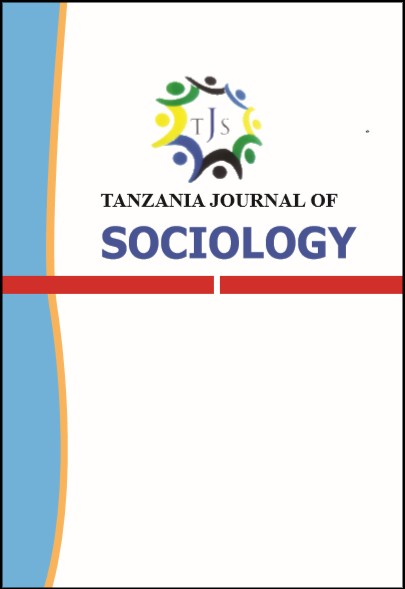Main Article Content
Land Use Cover Changes and Household Livelihoods Adaptation Strategies in Mbulu and Karatu Districts, Tanzania
Abstract
The interactions between the human and the biophysical factors at different spatial scales have triggered Land Use Cover Changes (LUCC). The study uses both qualitative (indepth interviews and focus group discussions) and quantitative techniques (household survey and spatial data analysis through the use of Geographical Information Systems (GIS) to acquire information and data for the study. The results have shown that overall LUCC is decelerating in both districts, Mbulu and Karatu across the two-time intervals. In the period between 1987and 2001, cultivation, settlements, wetland, grasslands and bare soils gained at the expense of forest, woodland, bush-land, and water. However, in the period between 2001 and 2015, again cultivation, settlements, wetland and bare soils gained except grassland which joined the categories of losers. The results have also revealed that communities have engaged in long term adaptation strategies to cope with the impacts of land use and land cover changes in the study area. These included agricultural intensification, afforestation programs and engaging in non-farming activities such as bee keeping and tourism. Despite the existing adaptation strategies to LUCC impacts in the study area, still community empowerment for enhancing the strategies is needed. This is due to the fact that, the community has limited options for livelihoods diversification that can absorb shocks and trends attributed to land use/cover change impacts over time and space.







